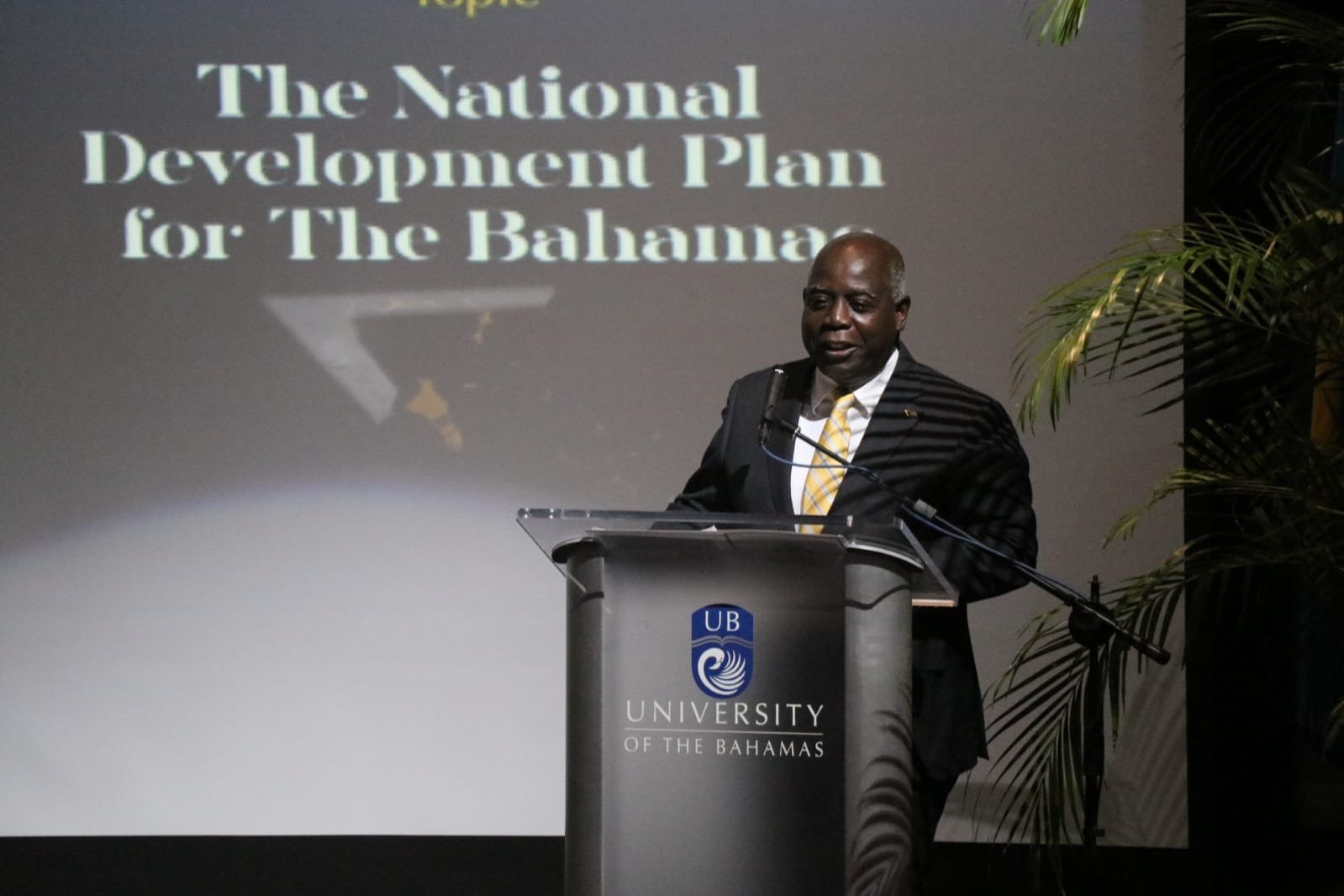NASSAU, BAHAMAS — Prime Minister Philip Davis’ commitment to adopting the national development plan has been hailed as a positive step by one senior accountant, who underscored the need for a clear timeline for adoption.
Hubert Edwards, the Next Level Solutions managing consultant expressed his personal views on Prime Minister Philip Davis’ recent lecture at the University of The Bahamas on the National Development Plan (NDP).

He said: “The Prime Minister has effectively outlined what I believe to be the essence of his desired outcome for his leadership and that is to create circumstances in which there is greater economic equity, a greater focus on human dignity, and a set of outcomes where, as he often states, “the many” benefits more than had enured up to this point and there is a greater evidence of provision for human dignity.”
He continued: “As a starting point, whether there is room for disagreement or not, in this regard he was consistent and come across with great authenticity. The lecture was extremely useful in that for the first time since the completion of the draft report in 2016 an administration is openly embracing it.
Edwards said: “The recognition that elements of kleptocracy; unreasonable government support of private efforts; and an entrenched status quo have existed for more than 50 years as limitations to development is an honest acknowledgment and should be a prominent consideration in how to chart the way going forward.”
Edwards further noted that the Prime Minister’s reflection highlighted his party’s performance over time compared to the Free National Movement.
According to Edwards, the National Development Plan must be seen with flexibility and will be subject to the approaches of a different administration. He noted however that this must be without the need to start everything from scratch each time is absolutely important to the way forward.
“The principle of government being facilitative but the individual being responsible for doing their own necessary heavy lifting is vital in this call for greater economic equity,” he said.
“The chances for success should not bear as heavily on certain association as it does today or the possibility of failure, however defined, should not be so contingent on lack of connections.”
“Overall the lecture was insightful and provocative, the stated intention of the PM, but suffered some unexpected weaknesses. Given the clear embrace of the NDP in the party’s manifesto, I anticipated a clearer delineation of the timeline for adoption.
“That said the undertaking to re-engage the committee is a positive. Secondly and objectively, the lecture while excellent could have been more unifying and would have easily been so with a reduction of some of the political references.”
Edwards added that the Government Policy Institute should be commended for facilitating such an important discussion and the PM should be applauded for following through on a campaign commitment but importantly for taking the steps necessary to set the country on a path that will fundamentally address, reduce or eliminate the artificial pressures which have maintained an adverse and consistent thread of limitation on many throughout the development of the country to date.






